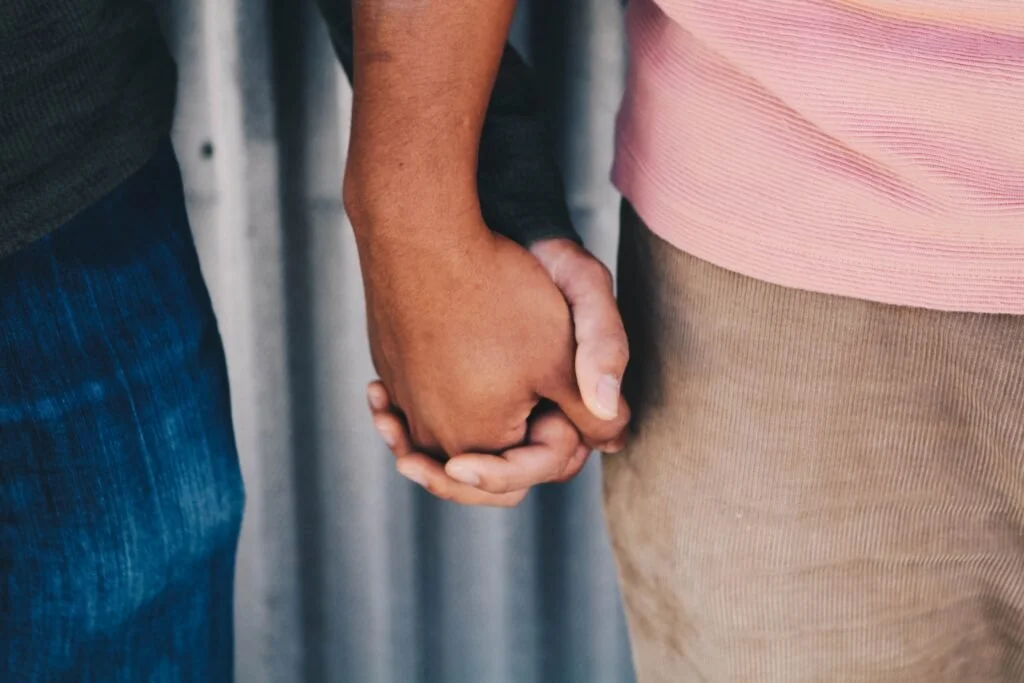How to Face and Heal Buried Shame
Shame Wounds
I recently read an amazing book by Robert A. Johnson, called He: Understanding Masculine Psychology. It’s a short read but I found it fascinating. He maps out the, story arc, if you will, of male psychological development using a version of the myth of the holy grail as the underlying narrative.
One thing that really struck me, was the author’s belief that every man carries a core psychological wound from their childhood, the healing or overcoming of which becomes like a secret quest throughout their life.
These wounds often come about as a result of being punished in some way, for something that we believed to be a positive. For example if our parents got angry and dismissed us when we came to them for affection. This can create a shame bind in our psyche, where we know a behaviour to be positive but the shame we feel in relation to that action completely stops us from being able to act it out.
Most of us likely had many such moments in our childhood, irrespective of our gender. For me, one that stands out took place a few weeks after I moved schools around 7 or 8 years old. Before that, I was a happy, energetic kid, full of love for everyone.
One day, we went on a school trip and I was running around, so excited, hugging and kissing everybody. One of the other boys called me gay and I didn’t even know what that meant but it became the seed of bullying that I suffered for the next 10 years. I became a social outcast, punished for doing something I believed to be good.
In therapy just a few years ago I finally started to realise the damage that this moment had done. Throughout my life I have battled with ongoing self-esteem issues. Too ashamed to fully express my affection, wary of compliments, while simultaneously desperate to connect and open up.
There have been times where I have managed to fully surrender and be seen, but often I ended up getting even more wounded. Burying those parts of me even deeper. And no doubt many more times when I’ve ended up hurting others because of this. You see, shame sits in the realm of our shadow, which is all the parts of ourselves that we can’t bear to look at – we don’t want to accept. And it means that the consequences of our reactions from this place can also reside outside of our conscious awareness.
When a person or situation gets too close to our shame, we react like a wounded animal – we react for survival. This is when fight, flight, freeze, fawn trauma responses kick in. From our own point of view we’re purely acting for self-preservation, protecting ourselves from being hurt.
But in these moments we become blind to other perspectives, and we can’t see how our responses can hurt people. Screaming or attacking our partners and then blaming them for making us feel like that. Stonewalling and shutting people who love us out completely, hitting the eject button and leaving the situation, or even the whole relationship.
We think we’re protecting ourselves but we can inadvertently cause so much hurt for the people around us, punishing them in turn for a wound we suffered decades ago.
Our partner who shuts down when we bring up a difficult conversation, that friend who belittles our success, or the family member who loses it when we beat them at a board game.. many of these kinds of reactions can be caused by unhealed shame.
When we say hurt people hurt people, this is exactly what we are talking about. And the sad thing is, the people who have hurt us the most quite possibly aren’t even aware of what they did and the pain it caused us. That’s why this is such important work – committing to heal our own buried wounds so that we don’t inadvertently pass our pain onto those who love us.
Trauma Responses
For the 18 months that followed my breakup from my girlfriend, my dad and I also had a particularly strained relationship. It had never been quite as close and free-flowing as I’d have liked, but this time was particularly difficult. I was in a lot of pain and was doing everything I could to straighten myself out, and one of the things that kept coming up for me was around unexpressed anger at my dad for not being there as much as I’d have liked when I was a child.
I believed that a lot of my challenges now were, at least in part, due to not having a better male role model and support when I was growing up. So I took my dad out for lunch and I confronted him about it. I wanted him to understand and feel my pain, and I wanted him to take some responsibility for it.
Now, I tried to do this in the healthiest way I could. I told him in advance that this wasn’t an attack, and that there were some things that I felt I had bottled up, that I needed to get off of my chest. But when my dad tried to respond to me, he froze up, was stumbling over his words and his thoughts were all over the place, which then made him angry. In that moment I realised that he was stuck in a trauma response because I’d gotten close to some of his buried shame.
When our minds kick into a trauma response, we’re psychologically returned to the childhood stage of development of when we were first traumatised in this manner. If we went through a traumatic experience and survived, our minds save the actions we took almost like a pre-programmed script that it can recall whenever we get into a similar situation.
This is literally a survival response so it’s a way for our minds to make us react on autopilot with a proven behaviour that has worked in the past – in so far as we survived the situation. A freeze response may have saved the life of our ancient ancestors to avoid being seen by a passing predator but, in that moment my dad also experienced a freeze response because I’d gotten close to his shame around not doing something he felt like he was supposed to have done.
Projection
The other side of this, which I find even more fascinating, is… not long after that, I realised all the anger and frustration I had towards my dad was actually because there were traits I could see in his behaviour that reminded me of my own actions that I saw as contributing to my break up.
I was so ashamed and disgusted in my actions for not speaking up about my needs, for not being strong enough, that I couldn’t even bear to look at them in myself. So I was projecting them onto my dad and expressing my anger at him instead. I was using him to externalise the parts of myself that I couldn’t accept.
Now we are all doing this, all of the time. Projecting the negative traits that we’re ashamed of as well as the positive ones we can’t fully accept, onto people around us. When we fall in love, we’re often falling for this idealised fantasy we project onto our new partners. Subconsciously wanting them to embody all the traits that we admire but are too shy to own in ourselves.
And when we fight we do the same. Blaming each other for actions that we suppress. For a long time after I split up with my ex, I blamed her for shutting down on me and not being more supportive when I needed her.
But I’m now able to look back and see that I was not communicating what was going on for me either. I’d rationalised it to myself that it was a noble action, not wanting to burden her and needing to be strong. But if you’re not being honest with each other about your experience, how can you connect and build intimacy?
How to Heal
It’s not easy to confront ourselves and take an honest look at the ways shame might be working under the surface in our own lives. None of us want to hear that our actions might have inadvertently caused significant pain to people we loved. But by learning more about this, and finding ways to share and work through it with our loved ones, we find a fast track path to deep healing and even deeper intimacy.
One of the best practices, and this I learned working with my own coach, is to spend deliberate time with someone close to you who you deeply trust, where you voluntarily share as much honest detail as you can about your own moments of shame.
The more intimately you know this person, the better, because the risk and discomfort you will feel in sharing your shame is the exact defence mechanism we want to release. But please remember, this is vulnerable so please make sure this is someone you completely trust and feel safe with.
The core of this practice, which is so powerful in any moment of interaction, even beyond this exercise, is for the other person to remain completely present and attentive, listen to every word you say and remain with you. No judgment or fixing, simply to be there while you express your deepest pain and still accept you. It is so incredibly healing to be fully heard, understood and accepted by another human while we are at our most vulnerable.
So you can take it in turns to share and listen, and this vulnerability and presence will bring you even closer together. Shame and other negative emotions are stored as tension in our bodies, and I have experienced massive physical release when I’ve expressed my shame like this. It’s like the relief of no longer having to hold onto this buried secret we’ve hidden from the world releases huge amounts of blocked energy back into our system. A weight is lifted and we can finally move freely again.
There’s a lot to take in here, but I would love for you to spend some time absorbing it fully and thinking about how you might bring a practice like this into any of your relationships. So much of the damage we do to each other is because of misunderstanding and poor communication, making assumptions that are often fuelled by this unhealed shame. This practice can provide so much healing to you and your loved ones, and bring you closer together at the same time.
Thanks for reading. I’d love to hear your perspective and if there’s anything else you’d like me to talk about then let me know in the comments too.



